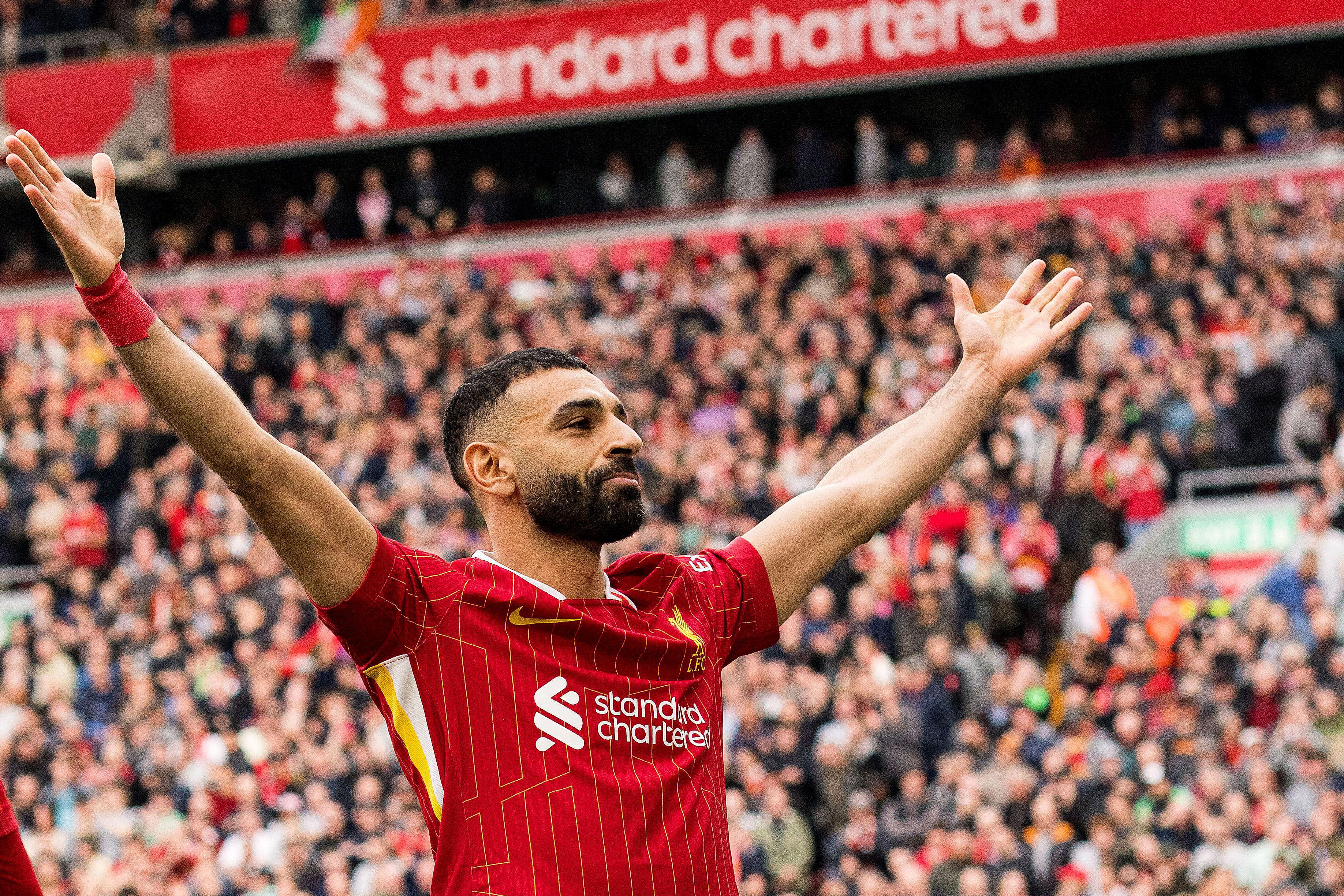When Jose met Louis: how the pair learned to love one another at Barcelona
As Louis van Gaal and Jose Mourinho prepare to meet for only the third time in their managerial careers, Tom Kundert recalls the blossoming of an unlikely relationship during the pair's time together at the Camp Nou...
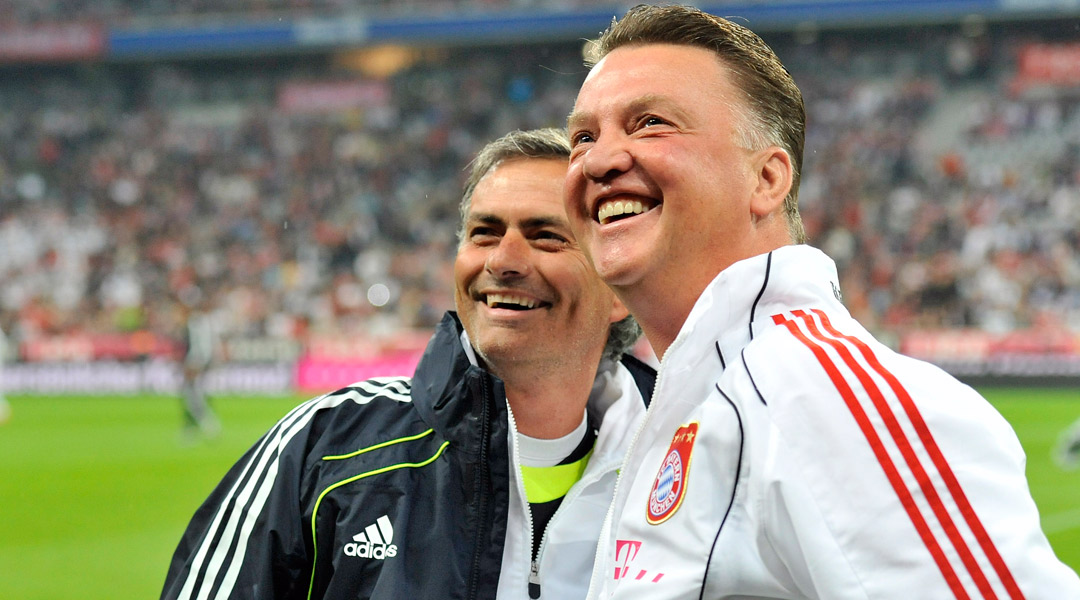
Louis van Gaal once said that his first impressions of his young assistant at Barcelona, a certain Jose Mourinho, were of “an arrogant young man who didn’t respect authority that much”.
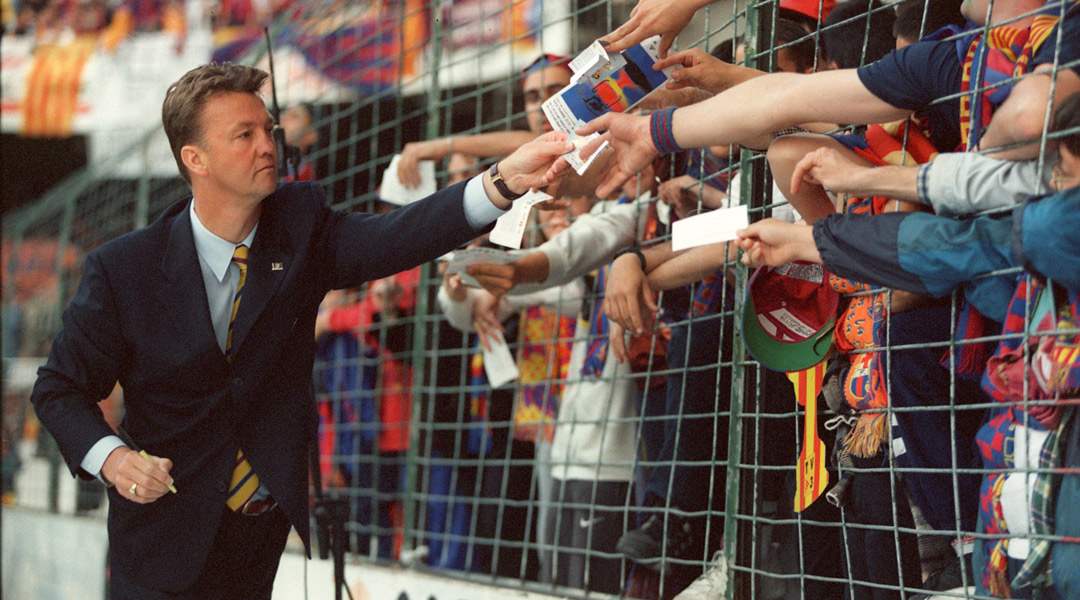
La Liga: 1997/98, 1998/99
Copa del Rey: 1998
Super Cup: 1997
Mourinho’s detractors frequently cite arrogance as one of the Portuguese coach’s chief personality traits. As for Van Gaal, his insistence on absolute control and the aloof way he carries himself have also earned him enemies in the game. So when the arrogant one and the autocrat were fortuitously thrown together at one of the world’s biggest clubs, it was reasonable to expect an explosive scenario that could only end badly, with a gargantuan dose of head-held-high pouting thrown into the mix.
The reality, however, was very different.
Closer examination of their spell at Barça goes a long way to deconstructing the public personas often painted of both men. The ability to listen to, absorb and utilise the knowledge of others flies in the face of the very definitions of arrogance and dictatorship. One can make a strong case that the genius of both coaches is in their willingness to closely observe their contemporaries and take on board the best of what they see.
Given the calibre of Mourinho’s mentors in particular, his openness towards learning from others has been of immense benefit to his career. Mourinho enthuses about Bobby Robson’s motivational skills, but he is no less lavish in his praise of Van Gaal, the man he worked alongside in Catalonia for three years, and who he is vying to topple on Sunday when he takes his Chelsea to Manchester United in the Premier League.
Get FourFourTwo Newsletter
The best features, fun and footballing quizzes, straight to your inbox every week.
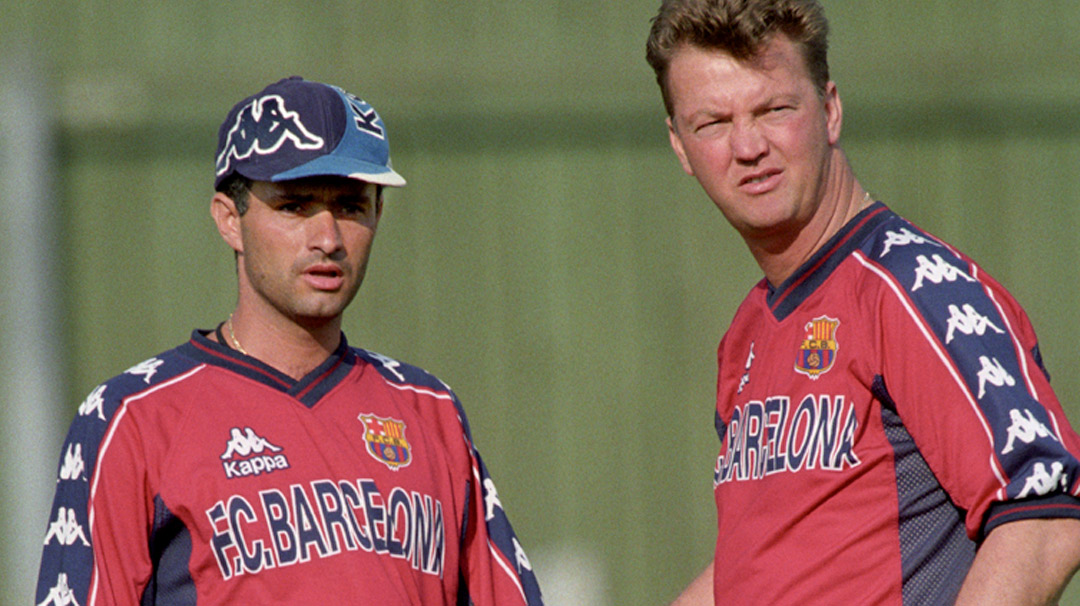
"He works like an animal"
It is not the first time the two have gone head-to-head since they were colleagues. Ahead of the 2010 Champions League Final between Mourinho’s Inter Milan and Van Gaal’s Bayern Munich, the Portuguese coach was asked to recall what he’d learned from the Dutchman when the two were working in tandem.
I won’t forget that time, or the person, who was marvellous with me"
“He taught me in particular that to go far, you have to work hard,” said the Portuguese. “He works like an animal, but with lots of pleasure. I can only say good things about that time. Although it was 13 years ago it seems like yesterday. I won’t forget that time, or the person, who was marvellous with me. It was a special relationship for me and a pleasure to work alongside him.”
Mourinho had originally been hired by Barcelona as Bobby Robson’s assistant, chiefly as a translator. He had been the Englishman’s interpreter at Sporting Lisbon, although right from the beginning he took it upon himself to brazenly overstep his brief. So taken was Robson with young Jose’s input that he insisted he accompany him when he became FC Porto manager, where they would win two successive league titles and Mourinho took on more responsibilities beyond his linguistic functions.
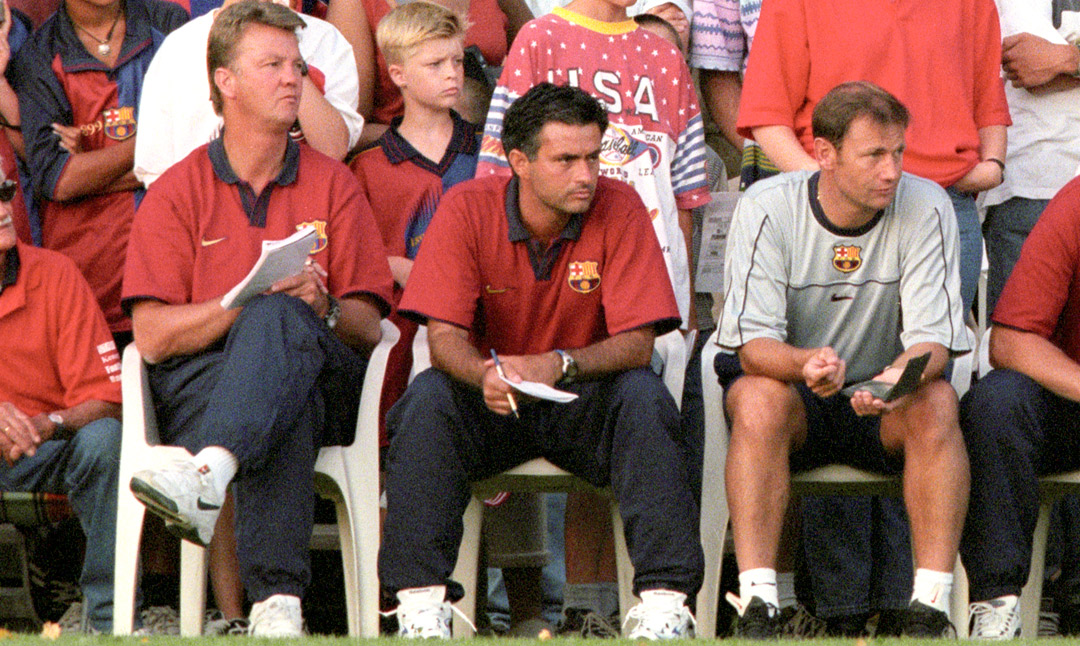
His detailed scouting reports of opponents amazed Robson and have become the stuff of legend. By the time Robson was sacked at Barcelona and replaced by Van Gaal, Mourinho had carved out a reputation as an intelligent thinker in his own right, and a useful bridge between No.1 and the squad given his affable manner with the players.
Van Gaal was equally impressed with Mourinho. “He was not submissive – he used to contradict me when I was in the wrong. Finally, I wanted to hear what he had to say and ended up listening to him more than any of the assistants,” was the Dutchman’s surprising assessment of the impression his translator-turned-coach made at Barcelona.
Learning lessons from Louis
It proved a trophy-laden collaboration at the Camp Nou, with back-to-back La Liga championships and a Copa del Rey triumph. But things turned sour in the third season as the recurrent failure to make headway in the Champions League and high-profile bust-ups between Van Gaal and senior players Rivaldo and Hristo Stoichkov brought a messy end to the Dutchman’s reign in Spain.
Finally, I wanted to hear what he had to say and ended up listening to him more than any of the assistants"
Even in disappointment, Mourinho’s ability to learn important lessons was used to his advantage. One of the defining traits of the Portuguese coach is his ability to forge strong bonds with his players, eliciting absolute commitment towards the common cause. Until his time at Real Madrid, it was difficult to find a footballer who had played under Mourinho with a bad word to say about him.
It is reasonable to surmise that Mourinho identified Van Gaal’s failure to get all his players onside as a major pitfall to be averted at all costs. Vítor Baía at Porto and Ricardo Carvalho at Chelsea both incurred Mourinho’s wrath after stepping out of line. In both cases, a short sharp castigation was duly administered and the incidents quickly forgotten. Both players subsequently gave magnificent service to Mourinho.
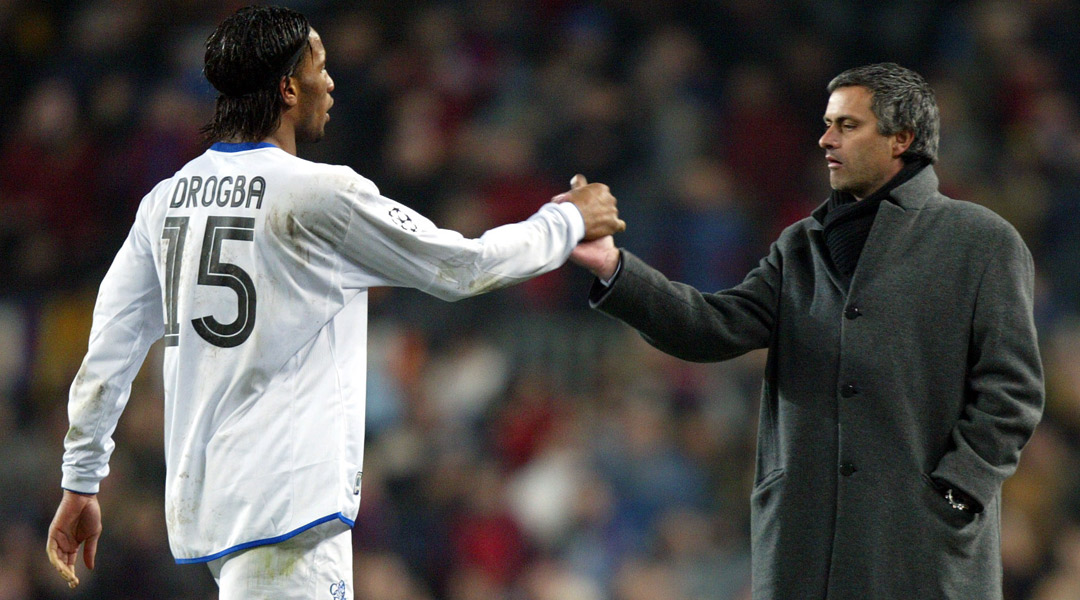
But it was Van Gaal’s meticulous organisation and single-minded focus on the job at hand that left the biggest impression on the Portuguese. Speaking to Portugal’s Record in 1999, Mourinho said: “Van Gaal is a workaholic. He spends eight to 10 hours a day in the club and skilfully manages the competencies of his staff.
"He is perfectly aware that the club has certain people who do certain things better than he does and he delegates the right person to the right job. In training he often just does the planning and observing, leaving his assistants to do the fieldwork.”
Van Gaal’s willingness to delegate accelerated Mourinho’s progress towards becoming a fully fledged manager in his own right, as the Dutchman handed his trusted assistant responsibility for coaching Barcelona’s B team and even the first team for some pre-season cup competitions.
In the same Record interview, before Mourinho had any experience as a first-team coach, he was asked whether Van Gaal had talked to him about his future in the game. “Yes,” came the definitive reply. “Every time a Spanish paper reports a coach has been sacked in Portugal he asks me: ‘Have they phoned you yet?’ He’s told me plenty of times that I can be a star in Portuguese football.”
Four years later Mourinho was lifting the Champions League trophy with Porto. His old boss was right.
